Did you know that over 70% of behavior issues in dogs stem from poor socialization? Whether you have a tiny puppy or a seasoned adult dog, the right socialization activities for dogs can transform them into confident, well-adjusted companions. In this comprehensive guide, you’ll discover proven strategies to help your pup thrive, avoid anxiety, and fully enjoy the world around them. Let’s debunk myths, explore surprising facts, and arm you with hands-on routines for every stage of your dog’s life .
Why Socialization Activities for Dogs Matter: Surprising Facts and Big Benefits
- Did you know that over 70% of behavior issues in dogs stem from poor socialization? Healthy socialization activities for dogs can drastically improve their confidence, reduce anxiety, and enhance overall happiness. In this section, we uncover the science and statistics behind socializing your dog, how early experiences shape lifelong behaviors, and the incredible impact of dynamic play and interaction.
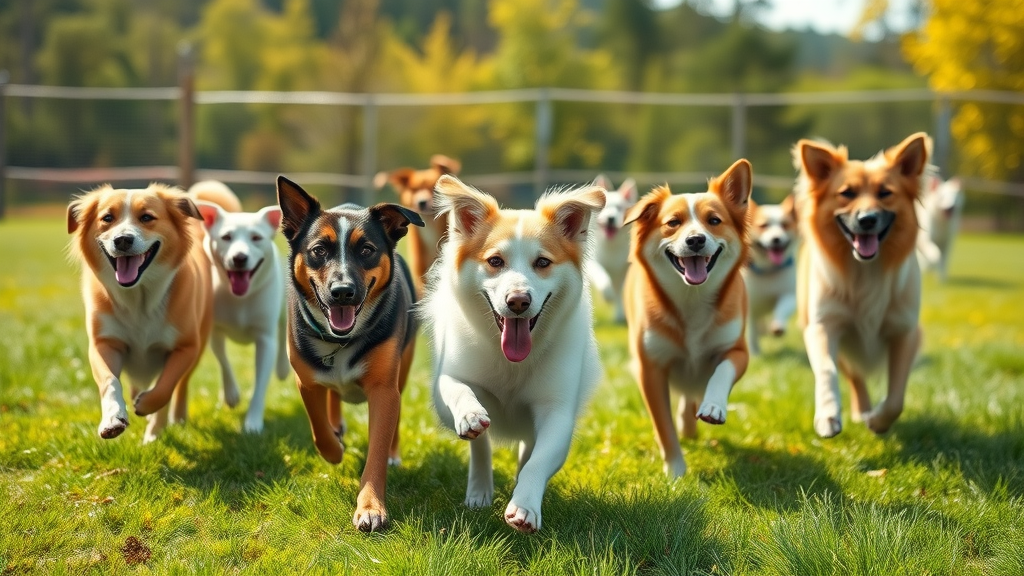
The science is clear: socializing your dog isn’t just a good idea—it can make the difference between a confident adult and a fearful, reactive pet. Structured socialization activities for dogs from puppyhood throughout adulthood foster adaptability and help dogs learn to tolerate new sights, sounds, and personalities. Studies show that dogs exposed to a variety of experiences early on are more likely to enjoy playing, behave calmly in public spaces, and avoid developing phobias or aggression.
For both puppies and adult dogs, regular interaction with other dogs, people, and new environments builds strong social skills and healthy coping mechanisms. Socialization also helps dogs learn crucial canine body language, how to play politely, and when to respect boundaries. Whether your dog prefers a romp in the dog park or calm meet-and-greets in new places, these experiences are essential for mental stimulation and lifelong happiness.
Essential Socialization Activities for Dogs: A Comprehensive Guide and Action Plan
- This section addresses the heart of socialization activities for dogs. Discover actionable socializing experiences, from puppy play dates to attending a dog park, integrating puppy socialization techniques, and including puppy class environments. Each method is tailored to beginner and experienced dog owners alike, with real-world examples showing how these activities help adult dogs and puppies flourish.
Socializing your dog isn’t about overwhelming them from day one—it’s about gradually introducing positive experiences in safe, structured settings. Puppy play dates , guided group walks, and supervised visits to a dog park expose dogs to unfamiliar people and animals in a controlled way. Adult dogs, too, benefit from small play groups, training classes, and enrichment puzzles that stimulate the mind while building confidence.
To get started, rotate play dates with dogs of various ages, sizes, and personalities, always prioritizing safety and positive reinforcement. Puppy classes offer a fantastic, instructor-led environment where puppies learn to explore the world and read other dogs’ body language . For older dogs, introducing new environments—like a dogs-only café or community walk—can reignite curiosity and teach your dog to feel safe in different settings.
Remember, each dog is unique. The best socialization activities for dogs meet them where they’re at, build trust through consistency, and adapt based on comfort and progress. With patience and creativity, you can help any dog enjoy playing and confidently take on new adventures.
Socialization Activities for Dogs by Age: Customizing for Puppies and Adult Dogs
Socialization Activities for Puppies: How to Teach Your Puppy Confidence Early
- Explore the most effective puppy socialization activities, including structured puppy classes, play date setups, and gentle exposure to various environments. Guidance provided by professional dog trainers ensures you teach your puppy with proven methods.
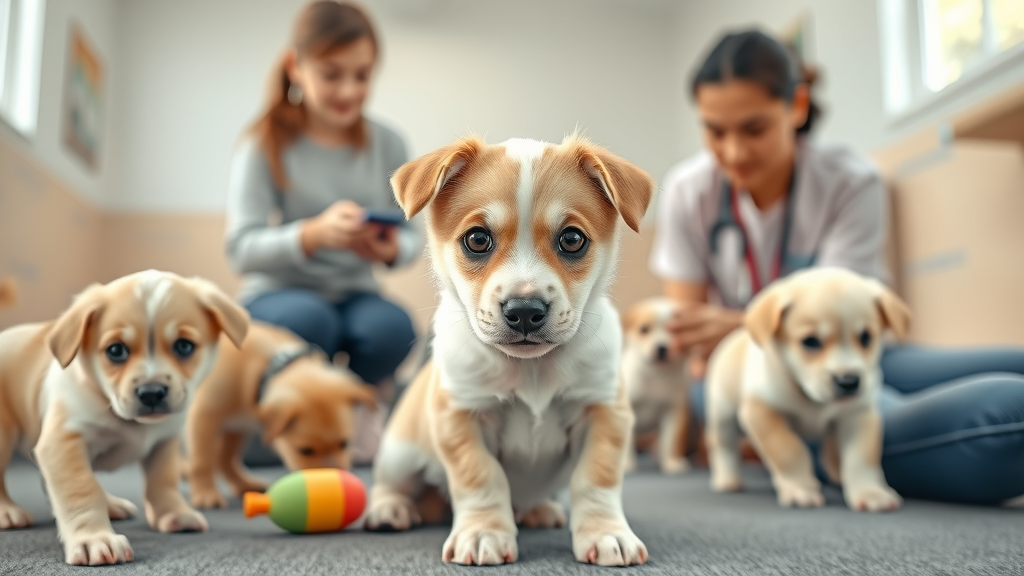
Puppy socialization is most effective between three and sixteen weeks of age, giving puppies a safe window to experience a variety of stimuli. Structured puppy classes —taught by professionals—help teach your puppy how to manage new situations and navigate play groups. Classes often simulate real-life distractions: unfamiliar dogs, different people, and odd noises.
At home, arrange play dates with puppies and tolerant adult dogs. Rotate toys, explore new surfaces, and provide gentle exposure to regular household sounds (vacuum cleaners, elevators, even trips in a shopping cart). By patiently introducing these changes, you’ll teach your puppy how to adjust calmly, avoid common fears, and become a confident adult .
Gentle, rewarding socialization paves the way for a lifetime of healthy social skills. The earlier you start socializing your puppy, the smoother the path toward a dog that’s friendly, adaptable, and eager to explore the world with you.
Strategies for Adult Dogs: Socialization Isn't Just for Puppies
- Learn top techniques for socializing your dog as an adult, including dog park visits, training classes, and introductions to new experiences. This section tackles the unique challenges facing adult dogs and explains how to integrate socialization activities at any age, ensuring a smoother transition.
Adult dogs are fully capable of learning new social skills, though their routines may require more patience, planning, and encouragement. Start by teaching your adult dog in quiet settings, gradually working up to busier spaces and larger groups. Short walks in new neighborhoods, play dates with calm dogs, and structured training sessions can help adult dogs unlearn past anxieties and adapt to change.
Many adult dogs enjoy play dates, especially when introductions are managed with care and positive reinforcement. Training classes for adults—distinct from puppy classes —focus on helping dogs relax around strangers, tolerate body handling, and ignore distractions. Regular exposure to gentle, positive experiences will help your new, older, or previously unsocialized dog blossom.
Transitioning an adult dog doesn’t mean pushing them into overwhelming situations. Use gradual exposure, lots of treats, and respect your dog’s comfort zone. Socialization activities at any age create meaningful change, improve communication, and build a bond of trust between you and your companion.
Top 10 Socialization Activities for Dogs to Build Confidence—From Dog Park to Puppy Classes
- Guided group walks in new settings
- Play date rotations with well-mannered dogs
- Controlled dog park visits with supervision
- Multi-surface exploration (grass, sand, wood, gravel)
- Introducing your dog to friendly adult dogs
- Interactive puppy classes or training sessions
- Meet-and-greet with friendly cats and dogs in quiet spaces
- Community walks with diverse distractions
- Enrichment puzzle games to stimulate the mind
- Safe city adventures for sights, sounds, and smells
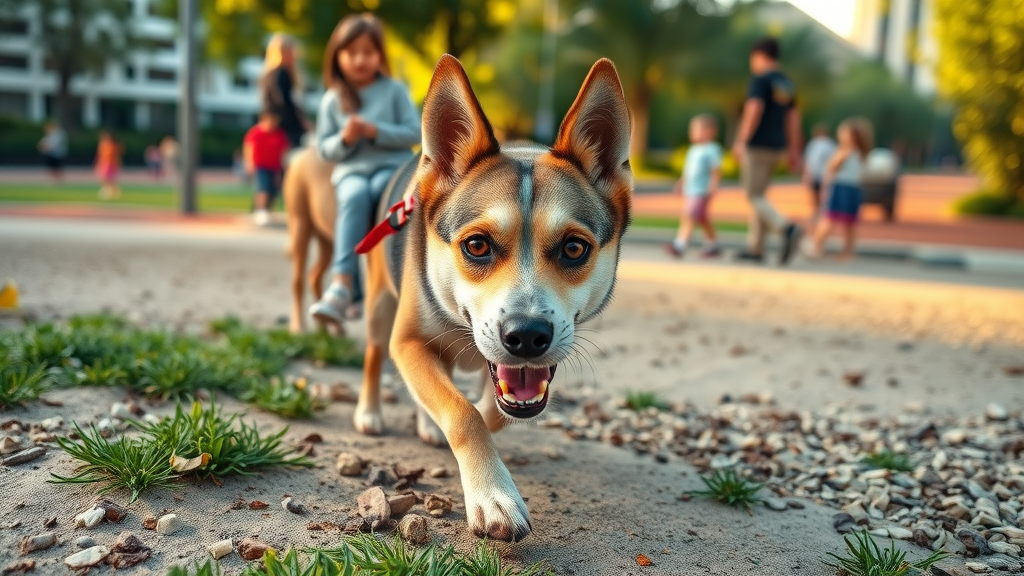
These ten activities help address a wide range of behavioral goals, from overcoming shyness to managing excess energy. Dog park visits offer valuable off-leash play, while community walks introduce your dog to new distractions and rewards. Meeting friendly cats and dogs expands a dog’s social comfort zone and helps them learn to tolerate new species and personalities, all of which supports positive long-term behavior.
Remember to supervise all encounters, especially in multi-dog settings and when introducing your pet to unfamiliar dogs or environments. If your dog is shy, reactive, or just getting started, opt for quieter times and gradually increase the level of challenge. These socialization activities for dogs give every pup the chance to experience a variety of positive, skill-building adventures—at their own pace.
Puppy Socialization: When and How to Start for Lifelong Benefits
The 7 7 7 Rule for Dogs: A Blueprint for Early Socialization
- Break down the 7 7 7 rule for dogs—seven new experiences, seven locations, and seven people per week—and show how these puppy socialization guidelines set the foundation for a behaviorally balanced pup.
The 7 7 7 rule is a powerful framework that encourages puppy owners to introduce seven new experiences, visit seven different places, and meet seven new people each week during a puppy’s critical development phase (typically under 16 weeks of age). Following this approach ensures that your pup learns to adapt to changes, reduces the risk of reactivity, and grows into a behaviorally balanced confident adult .
Examples include exploring elevators, interacting with children playing in the park, touching different surfaces, and listening to everyday home sounds. Introducing your puppy to a shopping cart ride or a gentle grooming session (lots of treats included!) counts as one of these valuable exposures. Consistent, positive introductions—always at a comfortable pace—help prevent anxiety and fear down the line.
Benefits of Early Puppy Classes and Structured Play
- Highlight how puppy classes and supervised play dates fast-track progress, making it easier to teach your puppy appropriate skills and overcome common anxieties.

Regular puppy classes provide a safe, social environment where puppies learn bite inhibition, body language awareness, and impulse control—all under the supervision of skilled trainers. These classes expose puppies to diverse play styles and help teach your puppy important social rules before undesirable habits develop.
Structured play groups and supervised play dates are equally critical. Friendly adult dogs often act as role models, demonstrating proper greetings and helping younger puppies learn the boundaries of polite play. By investing in puppy socialization early, you’re giving your pup the very best start toward a lifetime of positive experiences, confidence, and adaptability to new environments and people.
Overcoming Common Barriers: Socializing Your Dog at Any Age
Is It Ever Too Late? Socialization for Older or Adult Dogs
- Address misconceptions around the age limit for socialization activities for dogs, emphasizing that positive results are possible for adult dogs. Share specific exercises for integrating reluctant or previously unsocialized dogs into new routines.
Many pet owners wonder if it’s ever too late for socializing your dog . While early puppy socialization is ideal, adult dogs can and do benefit from structured socialization activities for dogs. The key is patience—start with short, controlled exposures and gradually build trust. Simple exercises, like walking near dog parks without direct interaction, or participating in low-stress training classes, help even nervous or older dogs adjust.
Integrating new routines should begin with quiet, predictable environments. Use positive reinforcement techniques for every calm interaction, and slowly increase challenge levels (such as meeting unfamiliar people or gentle, friendly dogs). Consistency and understanding are vital—don’t rush or overwhelm your adult dog , as rushed introductions can backfire and create setbacks.
Even if your dog has never had a play date before, it’s never too late to start. The mental enrichment and social exposure gained from these efforts can dramatically improve your dog’s outlook, behavior, and lifelong happiness.
Creative Solutions for Shy or Reactive Dogs
- Explore solutions for adult dogs or puppies with fear or reactivity issues, providing expert-backed tips for gradual exposure and controlled environments. Include relevant competitor keywords: adult dog, puppy socialization.
Shy or reactive dogs require a gentle, step-by-step introduction to new people and environments. If your adult dog is fearful, start with low-distraction settings where your dog can watch others at a comfortable distance. Use treats and calm praise for relaxed body language, moving incrementally closer as your dog associates each encounter with good things.
For puppies with similar tendencies, puppy socialization should focus on tiny, positive experiences—like a short walk around the block, or brief meetings with one new person at a time. Invite friendly, calm dogs for supervised play dates, and use toys or puzzles for engagement.
Remember, some dogs need more time. Success comes from patience, understanding, and expert guidance when needed. Creative socialization activities for dogs—tailored to personality, age, and comfort level—help every dog move forward at their own pace.
Mind Engaging Activities for Dogs: Mental Stimulation as Part of Socialization
- Describe enrichment games and mentally challenging exercises—such as treat treasure hunts and canine scent games—that are vital socialization activities for dogs. Emphasize how these go hand-in-hand with social exposure in boosting confidence and coping skills.
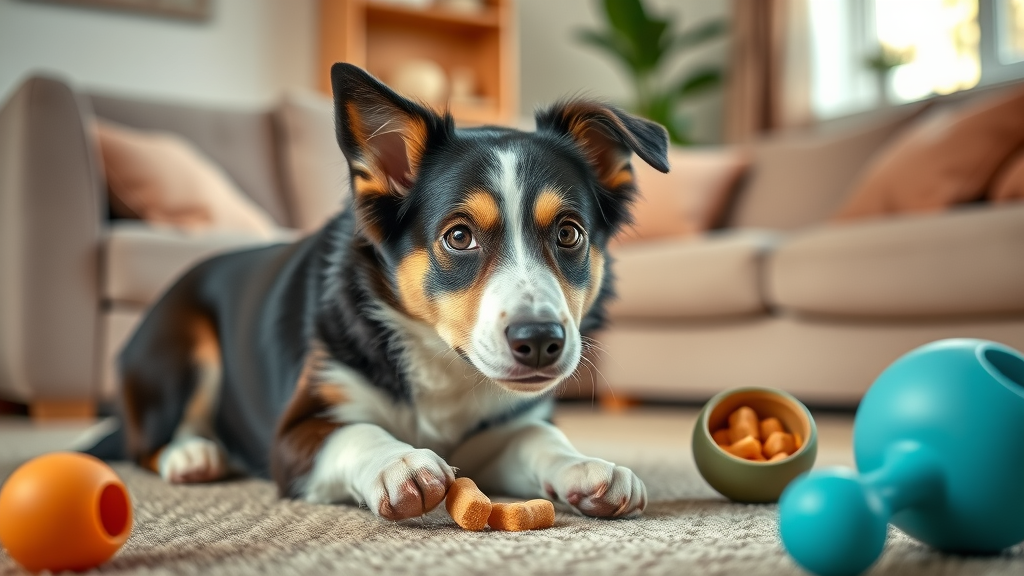
Mental enrichment is as vital as physical exercise for dogs’ overall well-being. Mind engaging activities for dogs —like treat treasure hunts, puzzle feeders, and scent-tracking games—offer cognitive challenges that reduce boredom, increase focus, and build resilience in unfamiliar situations. These games can be played indoors or outdoors, helping your dog associate new places with fun, rewarding experiences.
Incorporate problem-solving into play: hide treats under toys, teach basic tricks with positive reinforcement, or teach your dog to search for named objects. Many puppy socialization classes now include cognitive games alongside social exposure, ensuring puppies develop creative thinking skills as they learn to explore the world. Older dogs, too, benefit from regular engagement, showing reduced anxiety and fewer behavior problems.
| Activity | Recommended Age | Difficulty | Frequency |
|---|---|---|---|
| Treat Treasure Hunts | Puppy/Adult | Easy | 3-4x per week |
| Scent Games | Adult | Moderate | 2-3x per week |
| Puzzle Feeders | Puppy/Adult | Medium | Daily |
| Basic Trick Training | Puppy/Adult | Easy | 2-3x per week |
| Obstacle Courses | Adult | Challenging | Weekly |
Expert Tips for Safe and Successful Socialization Activities for Dogs
- Checklist for assessing readiness for new socialization experiences
- Precautions for puppy classes, play dates, and dog park visits
- Managing interactions between cats and dogs
- Early warning signs of stress and how to respond
Before any new activity, check that your dog is up-to-date on vaccinations, appears comfortable, and isn’t overwhelmed by previous sessions. Gradual exposure helps dogs feel safe —never force introductions. When attending puppy classes , play dates, or visiting a dog park, observe interactions closely. Look for loose, relaxed body language and mutual enjoyment. Supervise introductions with cats and dogs —start with separate spaces before carefully allowing close contact .
If you spot stress signals (whale eye, tucked tail, avoidance), take a break. Pushing a nervous dog too fast can backfire and create long-term reluctance. Watch for your dog’s individual preferences; some thrive in large groups, others prefer 1-on-1 play. The best socialization activities for dogs—whether for a puppy or an adult dog—are customized, patient, and always lead with safety.
How to Integrate Socialization Activities into Daily Life: A Practical Routine
- Map out a sample weekly plan blending dog park outings, puppy socialization tasks, mental enrichment, and play date sessions. Share scheduling strategies for busy owners and tips for tracking your dog's progress.

Busy schedules don’t have to prevent you from giving your pup the rich social experiences they deserve. Here’s a simple sample weekly routine:
- Monday: Community walk in a new neighborhood
- Tuesday: Mind games—puzzle feeders and scent work at home
- Wednesday: Supervised play date with a familiar dog friend
- Thursday: Visit a local dog park (off-peak hours)
- Friday: Practice greetings with friendly neighbors, children, or new adults
- Saturday: Attend a puppy class or adult dog training session
- Sunday: Quiet enrichment at home with family and favorite toys
Use a calendar or pet journal to track exposures and document observations of comfort levels or achievements. Remember, the goal isn’t quantity—it’s the quality and variety of socialization activities for dogs that bring out confidence and happiness in your furry friend.
Real Stories: How Socialization Activities Transformed Dogs’ Confidence
“After just a month of weekly puppy classes and guided play dates, our once-timid rescue became outgoing and relaxed around other dogs and people.” – Certified Dog Trainer
- Showcase before-and-after examples, featuring socializing breakthroughs for adult dogs, puppies, and dogs with previous behavioral difficulties.
Meet Max, an adult dog who spent years afraid of new places and unfamiliar dogs. His owner introduced him to weekly group walks, supervised community play groups, and interactive puzzle games at home. Within a few months, Max not only made friends but began to enjoy playing in the dog park and confidently greeted visitors at the door.
Luna, a nervous puppy, thrived after regular puppy socialization and classes with experienced trainers. Positive experiences with people and animals of all ages helped her relax and explore the world happily alongside her family. Consistent, gentle socialization can truly transform even the shyest pup into a confident, happy companion.
Video Tutorial: Step-by-Step Socialization Activities for Dogs
- Embed a walkthrough video demonstrating safe and effective socialization routines, including dog park introductions and confidence-building games.
[Video Embed Placeholder: Watch our expert demonstrate the first steps in group walks, safe dog park introductions, and introducing your pup to confidence-building exercises. See body language cues and reward techniques in real time!]
People Also Ask: Socialization Activities for Dogs
How can I help my dog socialize?
- You can help your dog socialize by arranging regular interactions with other well-mannered dogs, attending training classes, visiting new environments together, and providing ongoing positive reinforcement. Gradual exposure and consistency are key, particularly with supervised play dates and dog park visits.
What is the 7 7 7 rule for dogs?
- The 7 7 7 rule suggests exposing your puppy to seven types of new experiences, seven different locations, and seven new people each week, helping to optimize behavioral development through diverse socialization activities for dogs.
What age is too late to socialize a dog?
- It's rarely too late to begin socialization. While the critical window for puppies is under 16 weeks, adult dogs can still benefit greatly from mindful, structured socialization activities for dogs, though the process may require more patience and planning.
What are mind engaging activities for dogs?
- Mind engaging activities for dogs include treat puzzles, scent games, obstacle courses, training exercises, and interactive play that combine both socialization and cognitive stimulation to build confidence and prevent boredom.
Maximize Every Outing: Socialization Activities for Dogs at the Dog Park and Beyond
- Offer actionable strategies for making every outing—from the dog park to urban walks—an opportunity for enrichment and social development. Highlight unique socializing locations and tips for safe, positive experiences.
Every adventure with your dog can be a fun chance for growth. Turn routine errands into social outings by visiting pet-friendly stores, watching children playing from a distance, or exploring local markets. If your dog is comfortable, the dog park is ideal for supervised off-leash play in a secure, friendly atmosphere.
If you prefer quieter settings, arrange early morning meets with a smaller group of known dogs or take scenic walks in different neighborhoods. Always make sure your dog feels safe, and look for signs of stress or excitement. Rotating locations—and ensuring a mix of new and familiar faces—brings variety to your socialization routine.
Positive experiences in diverse environments lead to adaptable, happy, and confident pets. With planning, patience, and creativity, you can turn every day—even the most ordinary walk—into a rewarding adventure for your best friend.
Expert Q&A: Socialization Activities for Dogs FAQ
- Quick answers to the most common questions about socializing your dog, puppy socialization, and integrating mental enrichment into your dog’s daily routine.
Q: How soon should I begin puppy socialization? A: Start as early as your veterinarian recommends—ideally by eight weeks of age, using vaccination-safe methods.
Q: Can I socialize a rescue or older dog? A: Absolutely. With slow, positive exposures and professional guidance if needed, even adult dogs with limited past experiences can learn to thrive.
Q: What should I do if my dog is fearful during socialization? A: Respect their pace, use higher-value rewards, and back up to easier tasks if needed. Seek help from a professional trainer if progress stalls.
Video Demo: Introducing Dogs to New Experiences Safely
- Feature a video demonstration on introducing puppies and adult dogs to new environments, meeting other pets (cats and dogs), and troubleshooting common issues during socialization activities for dogs.
[Video Demo Placeholder: Watch this walkthrough of safe, calm introductions to unfamiliar people, environments, and pets. Learn how to set up interactions for success and what to do if your dog shows signs of worry.]
Let Socialization Activities for Dogs Build a Confident, Happy Companion
- Keep your pup happy, healthy, and engaged—discover fun, easy activities for dogs that boost bonding, burn energy, and beat boredom every day!
Start today: enrich your dog’s life with varied social experiences. You’ll see a boost in their confidence, happiness, and your bond—one play date, puzzle, or dog park adventure at a time.
To further enhance your understanding of socialization activities for dogs, consider exploring the following resources:
-
“7 Tips for Dog Socialization” : This article offers practical advice on introducing your dog to new environments and people, emphasizing the importance of gradual exposure and positive reinforcement. ( heartandpaw.com )
-
“Dog Socialization Activities: Enhancing Your Canine Companion’s Well-Being” : This resource delves into various socialization techniques, including outdoor adventures and controlled leash walks, to help your dog become more adaptable and confident. ( barkingblissdogs.com )
By incorporating these strategies, you can support your dog’s social development and overall well-being.
 Add Row
Add Row  Add
Add 


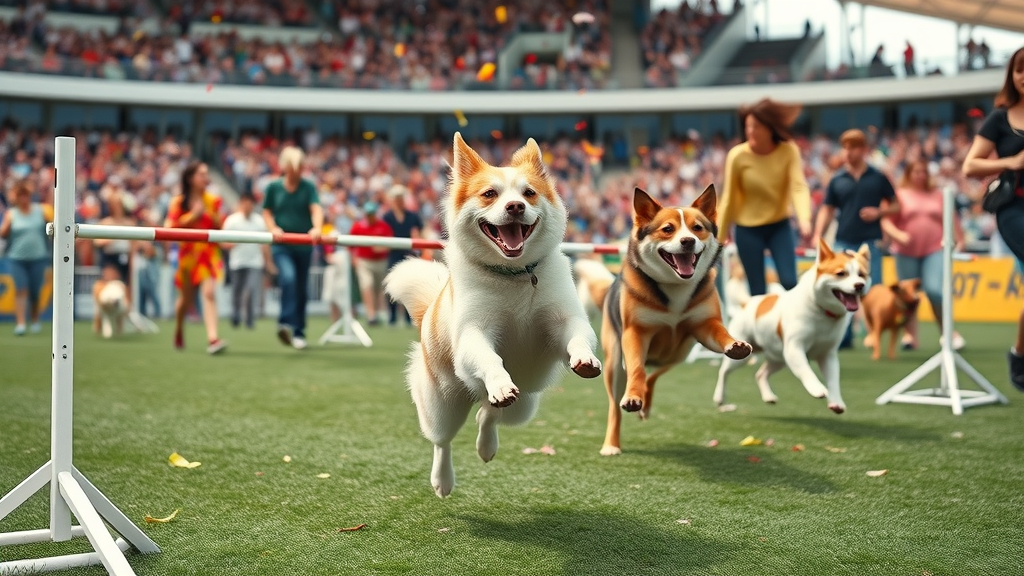
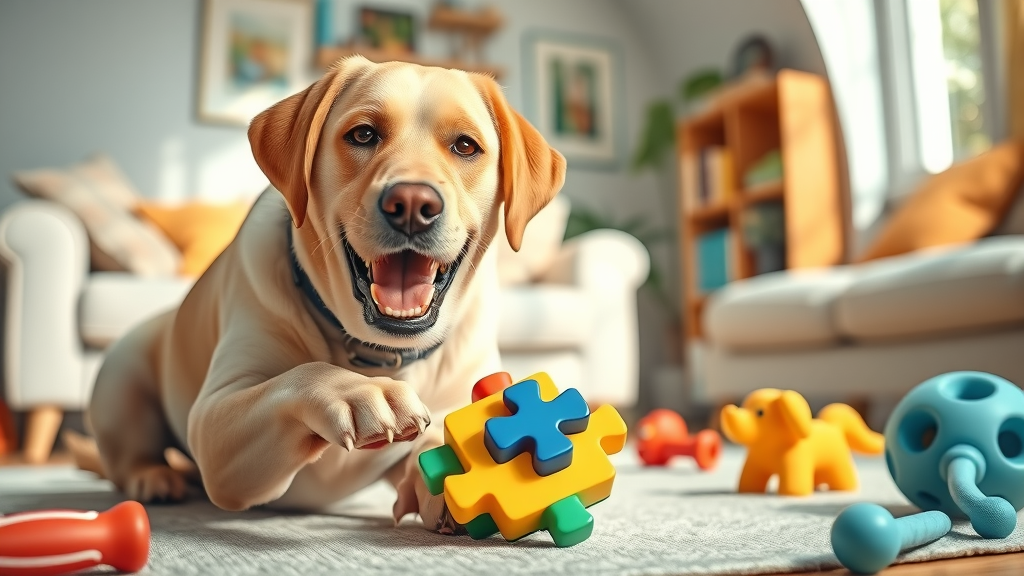
Write A Comment